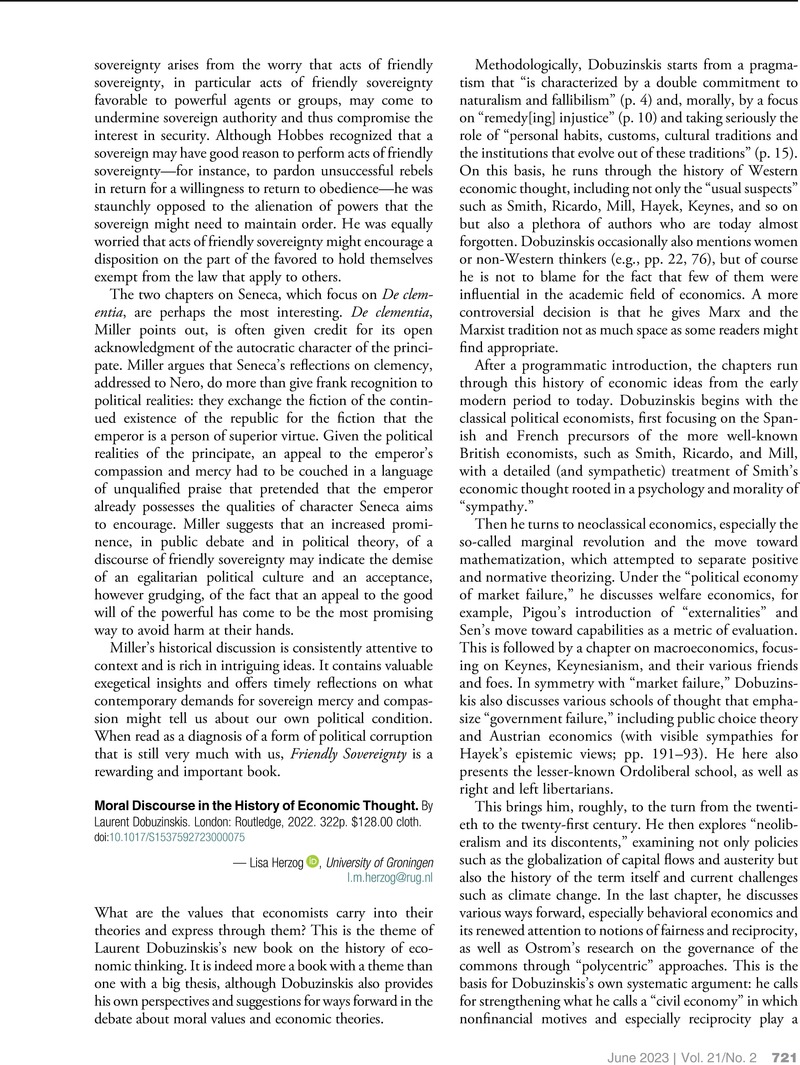No CrossRef data available.
Article contents
Moral Discourse in the History of Economic Thought. By Laurent Dobuzinskis. London: Routledge, 2022. 322p. $128.00 cloth.
Review products
Moral Discourse in the History of Economic Thought. By Laurent Dobuzinskis. London: Routledge, 2022. 322p. $128.00 cloth.
Published online by Cambridge University Press: 01 June 2023
Abstract
An abstract is not available for this content so a preview has been provided. Please use the Get access link above for information on how to access this content.

- Type
- Book Reviews: Political Theory
- Information
- Perspectives on Politics , Volume 21 , Issue 2: Special Section: Green Political Science , June 2023 , pp. 721 - 722
- Copyright
- © The Author(s), 2023. Published by Cambridge University Press on behalf of the American Political Science Association


